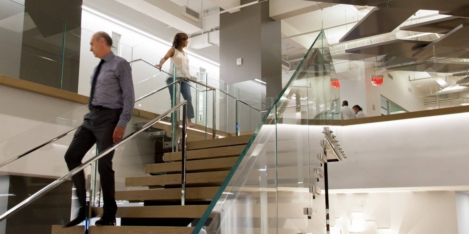October 16, 2018
The self-employed live day to day but remain worried about plans for the future, claims study
 Self-employed workers are mostly financially secure and happy in the present, but concerned about the future, a new report by IPSE (the Association of Independent Professionals and the Self-Employed) and Sherpa has found. The report, ‘The Path to Prosperity, claims that although almost three quarters (72 percent) of freelancers are currently enjoying life because of how they are managing their money, 77 per cent are concerned the money they have – or are going to save – will not last. It also found that over half (51 percent) of the self-employed have felt anxious or stressed about their financial situation. This is exacerbated by the lack of tailored money management advice and flexible savings products available for the self-employed.
Self-employed workers are mostly financially secure and happy in the present, but concerned about the future, a new report by IPSE (the Association of Independent Professionals and the Self-Employed) and Sherpa has found. The report, ‘The Path to Prosperity, claims that although almost three quarters (72 percent) of freelancers are currently enjoying life because of how they are managing their money, 77 per cent are concerned the money they have – or are going to save – will not last. It also found that over half (51 percent) of the self-employed have felt anxious or stressed about their financial situation. This is exacerbated by the lack of tailored money management advice and flexible savings products available for the self-employed.


















 The way to measure an employer’s speed of innovation includes how they find talent, their appraisal process, how employees recommend the organisation they work for to others, and how much employees collaborate, claims a new European study by Cornerstone OnDemand and IDC. “Future Culture: Building a Culture of Innovation in the Age of Digital Transformation” explores the relationship between European organisations’ speed of innovation and talent management, with the research showing that firms with a steady stream of new products and services are more likely to have an ongoing feedback process with employees, rather than an annual performance review, while organisations with a slower rate of innovation often use coaching and mentoring to develop employees.
The way to measure an employer’s speed of innovation includes how they find talent, their appraisal process, how employees recommend the organisation they work for to others, and how much employees collaborate, claims a new European study by Cornerstone OnDemand and IDC. “Future Culture: Building a Culture of Innovation in the Age of Digital Transformation” explores the relationship between European organisations’ speed of innovation and talent management, with the research showing that firms with a steady stream of new products and services are more likely to have an ongoing feedback process with employees, rather than an annual performance review, while organisations with a slower rate of innovation often use coaching and mentoring to develop employees.












August 22, 2018
Why early intervention matters for workplace mental health
by Liz Walker • Comment, Wellbeing, Workplace
(more…)